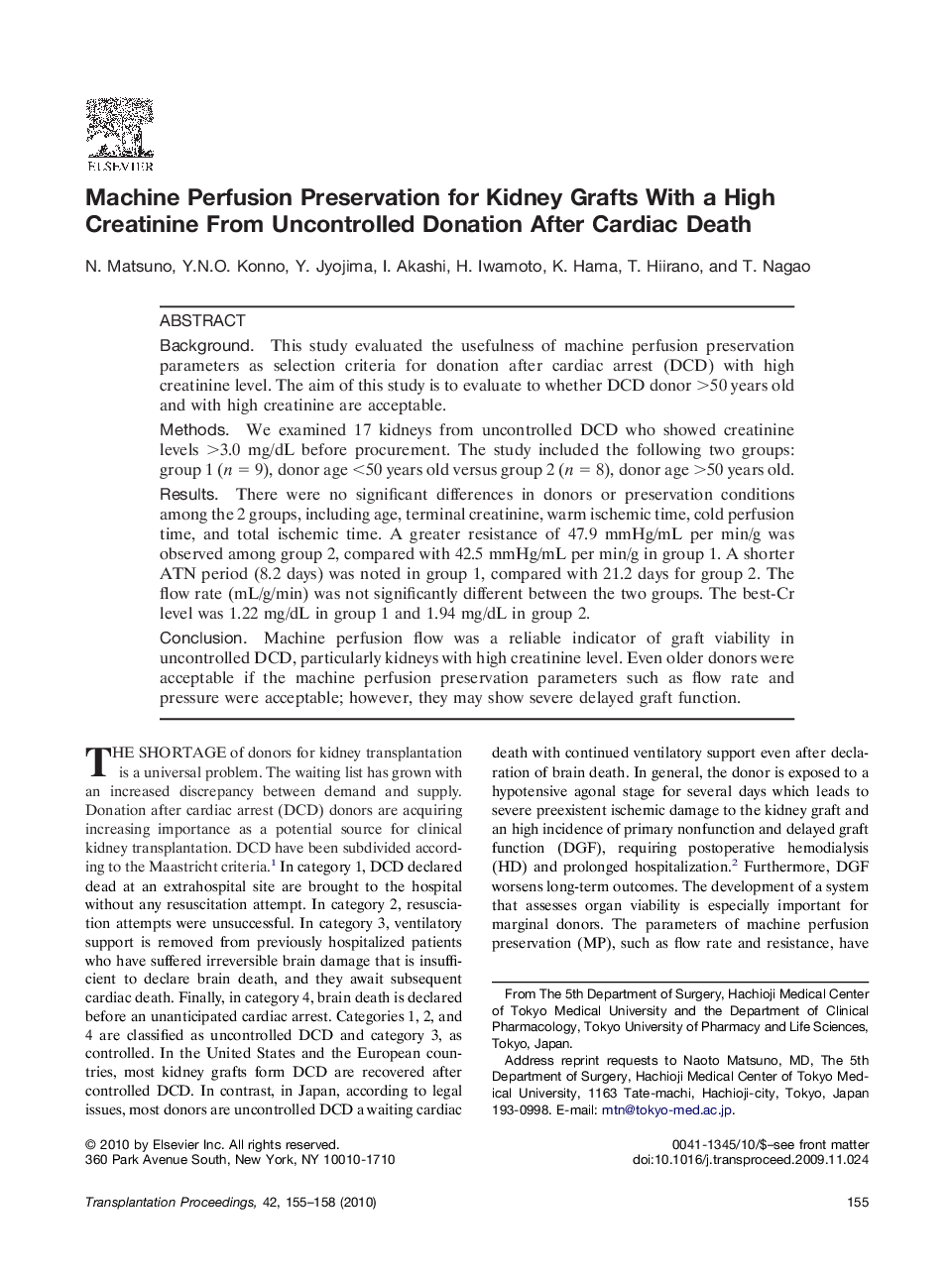| کد مقاله | کد نشریه | سال انتشار | مقاله انگلیسی | نسخه تمام متن |
|---|---|---|---|---|
| 4260843 | 1284587 | 2010 | 4 صفحه PDF | دانلود رایگان |

BackgroundThis study evaluated the usefulness of machine perfusion preservation parameters as selection criteria for donation after cardiac arrest (DCD) with high creatinine level. The aim of this study is to evaluate to whether DCD donor >50 years old and with high creatinine are acceptable.MethodsWe examined 17 kidneys from uncontrolled DCD who showed creatinine levels >3.0 mg/dL before procurement. The study included the following two groups: group 1 (n = 9), donor age <50 years old versus group 2 (n = 8), donor age >50 years old.ResultsThere were no significant differences in donors or preservation conditions among the 2 groups, including age, terminal creatinine, warm ischemic time, cold perfusion time, and total ischemic time. A greater resistance of 47.9 mmHg/mL per min/g was observed among group 2, compared with 42.5 mmHg/mL per min/g in group 1. A shorter ATN period (8.2 days) was noted in group 1, compared with 21.2 days for group 2. The flow rate (mL/g/min) was not significantly different between the two groups. The best-Cr level was 1.22 mg/dL in group 1 and 1.94 mg/dL in group 2.ConclusionMachine perfusion flow was a reliable indicator of graft viability in uncontrolled DCD, particularly kidneys with high creatinine level. Even older donors were acceptable if the machine perfusion preservation parameters such as flow rate and pressure were acceptable; however, they may show severe delayed graft function.
Journal: Transplantation Proceedings - Volume 42, Issue 1, January–February 2010, Pages 155–158